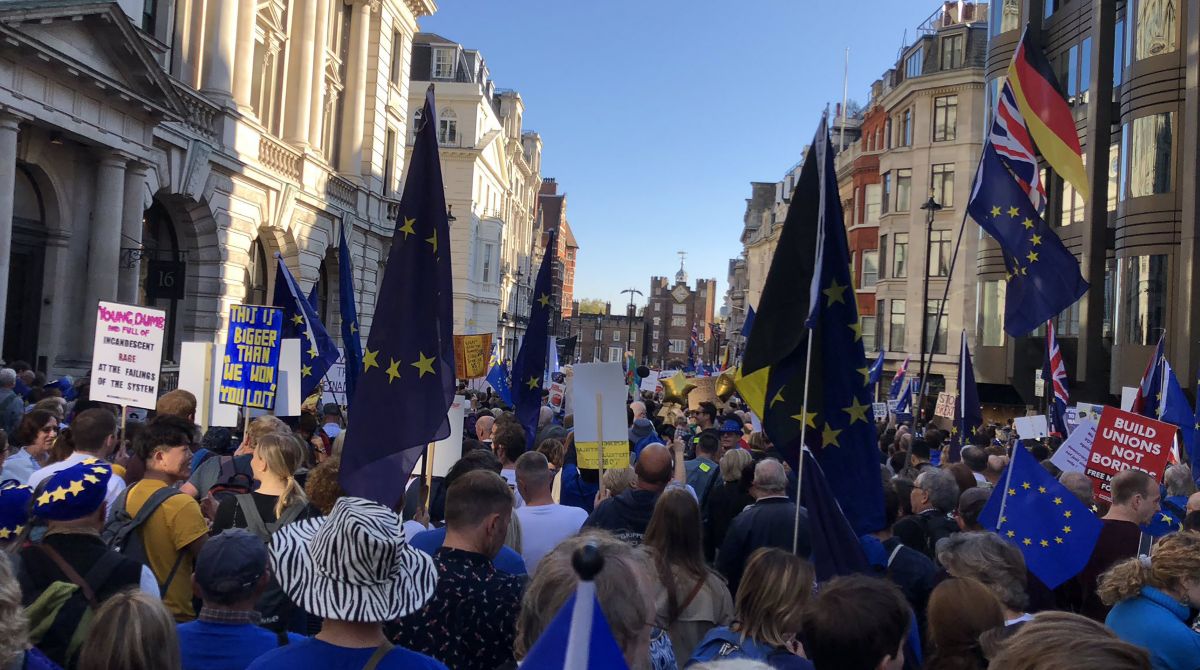Kingston University politics expert says Labour splitters have made Brexit even more complicated – and weakened prospect of what they want to achieve
Posted Monday 18 February 2019

Seven Labour MPs have resigned over Jeremy Corbyn's approach to Brexit and concerns around anti-semitism – but does this help or hinder their hopes of securing a second referendum? Dr Robin Pettit, senior lecturer in comparative politics at Kingston University in London, examines the decision of MPs Chuka Umunna, Luciana Berger, Angela Smith, Ann Coffey, Chris Leslie, Mike Gapes and Gavin Shuker to quit the party and whether this could spark a radical change in British politics.
"The British political system is very unforgiving of new parties. Anyone who splits with one party to form something new is unlikely to win. You have to wonder what they are hoping to achieve – short term, this could well weaken the prospect of a second referendum and long term, there simply isn't room in our current electoral system for small parties. We saw this with the SDP, the Liberal Democrats and UKIP in 2015."
Why now?
"These MPs have longstanding concerns over the Labour leadership. I suspect the timing is simply that this has been planned for a while and at some point you just can't sit on it any longer. One thing is for sure – betrayals leave long scars and these politicians are not likely to come back from that anytime soon. They are clearly so unhappy with the Corbyn project they felt they had no other option but to leave.
"I can't believe they don't know their chances of retaining seats in the next election would be slim. Unless they are completely blinkered – and I don't think they are – they have to know this is unlikely to be a good career move."
What impact will this have on Brexit?
"Obviously these seven MPs now have more independence to work with pragmatic Conservatives. A group of seven isn't, however, going to be enough to be a sufficient counterweight to the European Research Group (ERG).
"The big problem now is that it will very difficult for moderate Labour MPs to work with moderate Conservatives and these seven independents in a cross-party approach to break the impasse. Labour MPs can't be seen to working with a group who will be viewed as traitors by the party, so it further muddles and complicates things."
Does the split strengthen or weaken the campaign for a second referendum?
"From what you hear, pro-remain Labour MPs who back a second vote have been trying to persuade them not to leave because of the damage it would do. Labour MPs who support a second referendum would now be seen to be supporting a group who have quit the party and that's obviously tricky. The People's Vote campaigners have to distance themselves too if they are to win over the Labour front bench.
"Arguably, these seven MPs have weakened the prospect of what they have been saying they want to get. In terms of getting a second referendum, they would have had a better chance by staying within Labour."
Who gains more from this – Jeremy Corbyn or Theresa May?
"This split creates further fragmentation and, at the moment, may make it more difficult for the Prime Minister to get a deal through the Commons. But obviously, from a Conservative Party perspective, it's always nice to see your main opponents splitting.
"Corbyn has now seen seven key critics leave and this will probably strengthen his hold on the Labour Party. If a Labour MP criticises Corbyn now on the same grounds as these people, they will be tarred with the betrayal brush. So it definitely makes it more difficult for people inside the party to criticise the leader."
- Find out more about studying politics and international relations at Kingston University.
